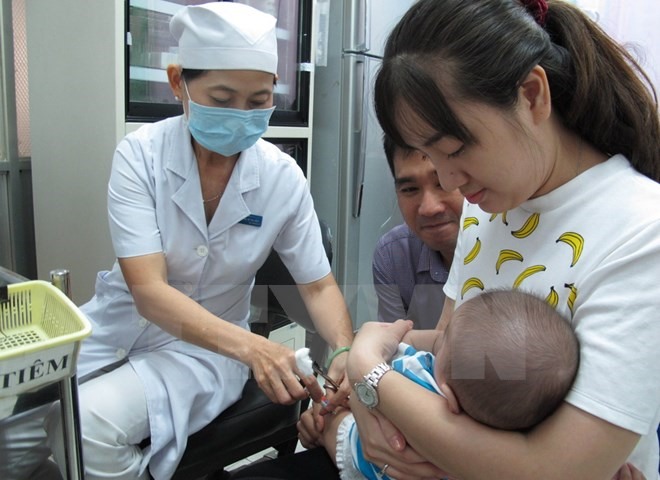

Only 68 per cent of infants in the country receive hepatitis B vaccination within the specified two days of birth, according to the National Institute of Hygiene and Epidemiology.
 |
| Vaccine is considered to be the most effective measure to prevent hepatitis B. - VNA/VNS Photo Phương Vy |
HÀ NỘI — Only 68 per cent of infants in the country receive hepatitis B vaccination within the specified two days of birth, according to the National Institute of Hygiene and Epidemiology.
The figure in some localities such as northern Hải Phòng City is even lower at 50 per cent, the institute’s deputy director Dương Thị Hồng told the government portal chinhphu.vn.
According to the World Health Organisation (WHO), hepatitis B is the leading cause of liver cancer. Around 25 per cent of hepatitis B patients will eventually suffer from liver cancer if they go without treatment. And 100 per cent of liver cancer cases in children are caused by hepatitis B.
Hepatitis B mainly spreads through blood, so the viral infection can spread during birth (from an infected mother to the infant) or through sex with an infected partner. Currently, there is no specific treatment for hepatitis B, so a vaccine is considered to be the most effective preventive measure.
Speaking about reasons for the low vaccination rate, Hồng said many medical workers hesitate to give it as they are concerned about its side-effects. Mothers, too, choose not to give their newborns the injection for the same reason. Also, many hospitals do not focus on an immunisation programme, Hồng explained.
The national average rate for hepatitis B vaccinations was particularly low before June 2016, at below 50 per cent, after there was an incident of a baby dying after getting the hepatitis B vaccination. Though medical experts confirmed that the death was not caused by the vaccine, it remains a matter of concern for many people.
Around 8.7 million people in Việt Nam are infected by hepatitis B, and one million others by hepatitis C, as per statistics shared by the health ministry, in coordination with the WHO. The WHO has recommended that a combined treatment-and-prevention strategy could eliminate hepatitis B and C from the country by 2030.
Preventive methods include vaccinating newborns within two days of birth, especially infants from high-risk areas, and keeping a check on bacterial contamination inside and outside medical clinics. — VNS




